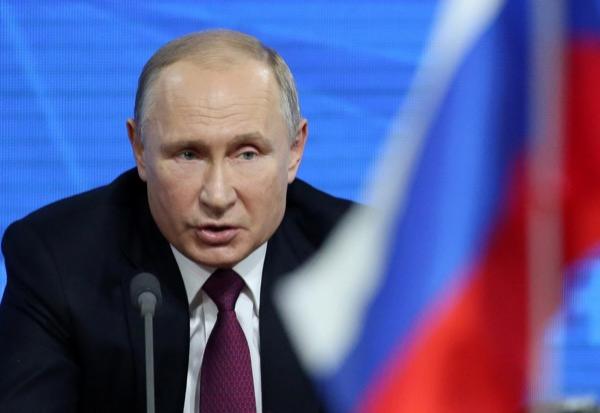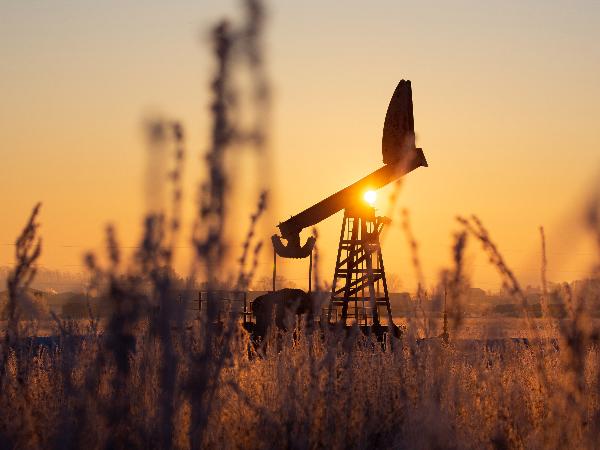Nickel price a harbinger of economic mutually assured destruction
The nickel price on the London Metal Exchange surged to over $100,000'tonne today before being suspended indefinitely. But restrictions on Russian oil and gas are the true economic nuclear weapons.
 Source: Bloomberg
Source: Bloomberg
As Russia invades Ukraine, an escalating tit-for-tat exchange of sanctions could see both Europe and Russia head into deep economic recessions.
Nickel price surge
Russia and Ukraine are major suppliers of multiple commodities. And with the countries at war, prices are soaring. Ukrainian exports have all but ceased, while traders are avoiding buying Russian commodities for fear that future sanctions could see delivery of paid-for assets banned.
Nickel is now the commodity most affected by the war, with Russia’s Nornickel the largest supplier of battery-grade nickel in the world.
Nickel was worth only $20,757/tonne at the start of the year and has only risen by around $11,000 a tonne over the past five years. But it skyrocketed to a record $101,3565/tonne earlier today, as short-sellers were margin called, or forced to cover their trades to prevent unaffordable losses.
Yesterday, the London Metal Exchange (LME) allowed traders to defer delivery of obligations on all its main contracts, including nickel. It also gave China Construction Bank Corp extra time to pay hundreds of millions of dollars of margin calls. Jiang Hang at Yonggang Resources believes ‘it’s not reflecting any industry fundamentals…the LME trading system is out of control and requires intervention.’
Accordingly, the LME has halted nickel trading ‘‘on orderly market grounds,’ saying only that ‘the LME will actively plan for the reopening of the nickel market and will announce the mechanics of this to the market as soon as possible.’ When nickel reopens, Marex thinks the ‘sky looks to be the limit’ for prices.
Palladium, Aluminium, Copper, gold, and wheat are also all at record or near-record highs. Morgan Stanley believes ‘commodity markets are increasingly pricing in a scenario under which a significant portion of Russian supply will be excluded from the market.’
 Source: Bloomberg
Source: Bloomberg
Economic mutually assured destruction
Russia’s economy is teetering on the brink of collapse. The Russian Rouble is worth less than an Afghani. The country has closed its stock market; the last time it did this was in 1917 when it stayed closed until 1992. Russian shares dual-listed elsewhere have collapsed by 90% or more and Moody's has cut Russia’s credit rating to Ca, the second-lowest possible. Western companies are pulling out of the country, with those remaining, such as McDonald's and Coca-Cola, under extreme pressure to do the same.
But the Russian state is still operating, due to sales of oil and gas. And the day-ahead UK gas price has risen by 10% to 565p/therm, a tenfold increase compared to a year ago. Meanwhile, Brent Crude is trading at roughly $125 a barrel, slightly down from yesterday’s 14-year high of $139, but far above its $70 average in 2021.
However, Shell is now completely withdrawing from the Russian oil and gas market. CEO Ben van Beurden explained ‘we are acutely aware that our decision last week to purchase a cargo of Russian crude oil, despite being made with security of supplies at the forefront of our thinking – was not the right one and we are sorry.’ BP is selling its 19.75% stake in Rosneft, further severing ties.
And Russian Deputy Prime Minister Alexander Novak has threatened to ‘impose an embargo on gas pumping through the Nord Stream 1 gas pipeline’ in response to Germany’s ban on Nord Stream 2. He’s warned that ‘rejection of Russian oil would lead to catastrophic consequences for the global market,’ causing Brent to rise to $300 a barrel.
The EU gets 40% of its gas and 30% of its oil from Russia. The US, far less reliant on Russia, is exploring a potential ban on Russian oil and gas to western countries. However, German Chancellor Olaf Scholz has emphasised that Europe ‘deliberately exempted’ Russian energy from sanctions because its energy supplies cannot currently be secured ‘any other way.’ Investec’s Nathan Piper concurs, saying ‘practically it is challenging’ to impose a ban, and that with global reserves low, there is ‘limited spare capacity to replace any disrupted Russian volumes.’
JP Morgan predicts oil could hit a record $185 a barrel by the end of 2022 if disruption to Russian exports continues. RBC Capital Markets analyst Mike Tran argues ‘developments in Russia/Ukraine have ignited a market that was already a coiled spring… it is not unfathomable for prices to rocket to $200/barrel by summer.’ An outright ban could send oil prices far higher.
If Russia stops exporting oil and gas to the west, it could annihilate what’s left of the Russian economy. If the west stops buying, it would cause a deep recession, at a time when European countries are deep in pandemic debt.
As Carl Sagan said: ‘The nuclear arms race is like two sworn enemies standing waist deep in gasoline, one with three matches, the other with five.'
Trade over 35 commodities with continuous pricing, low spreads and fast execution with us, the UK’s No.1 trading provider.*Learn more about commodity trading with us or begin trading commodities now.
* Based on revenue excluding FX (published financial statements, June 2020).




.jpeg.98f0cfe51803b4af23bc6b06b29ba6ff.jpeg)
0 Comments
Recommended Comments
There are no comments to display.
Create an account or sign in to comment
You need to be a member in order to leave a comment
Create an account
Sign up for a new account in our community. It's easy!
Register a new accountSign in
Already have an account? Sign in here.
Sign In Now